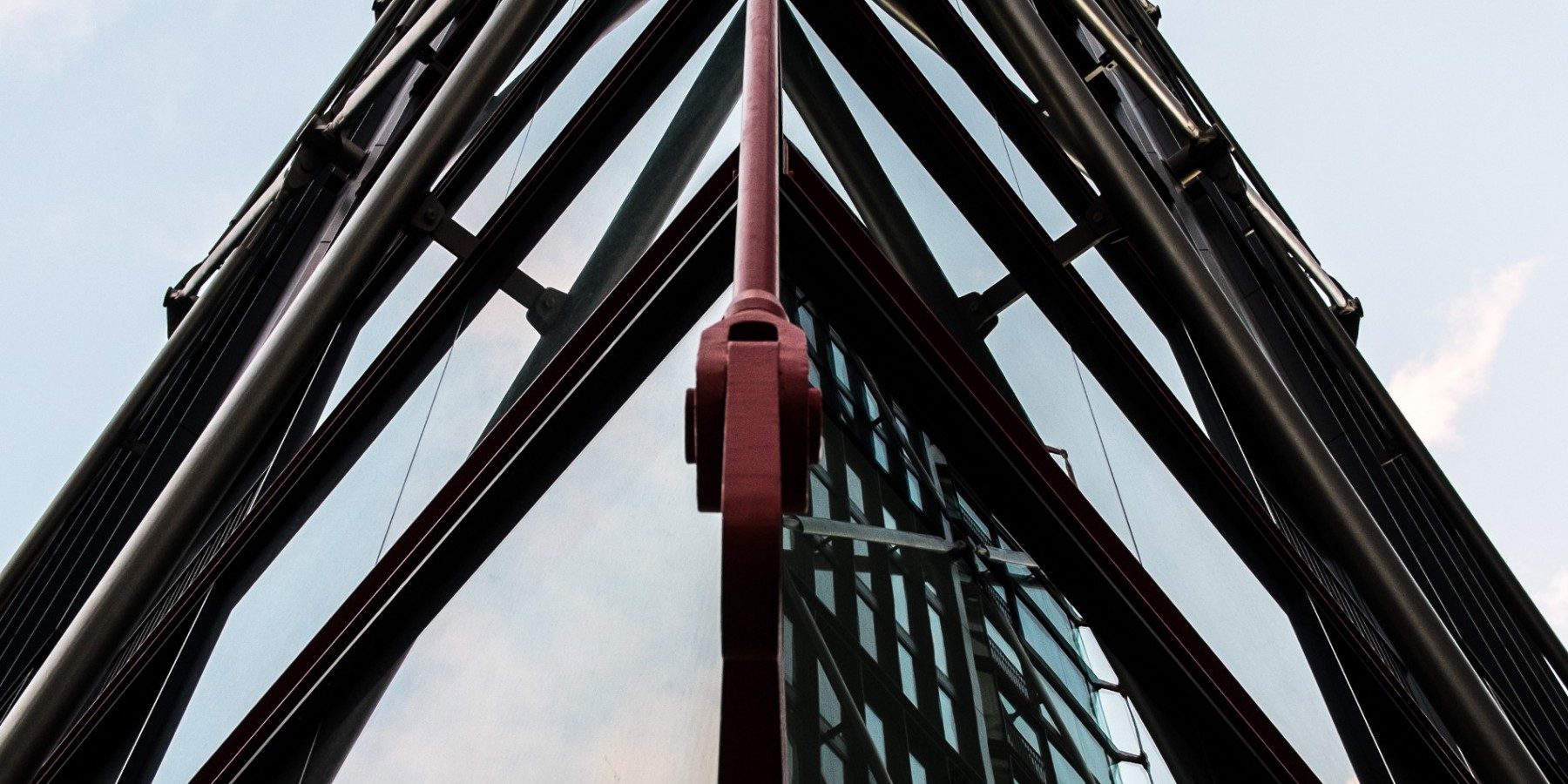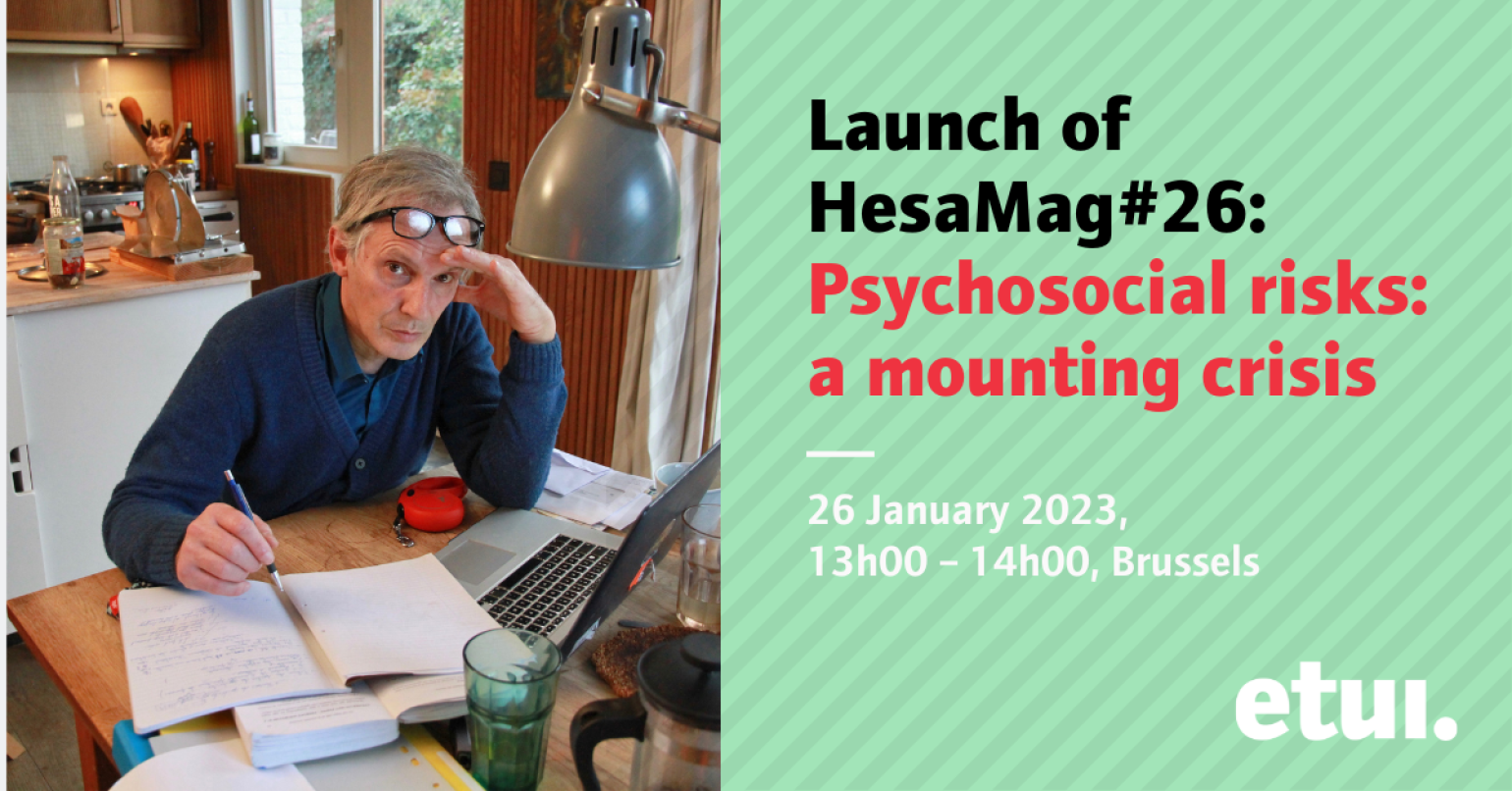
Mounting crisis of PSR centre-fold
HesaMag places psychosocial risks in the spotlight.

Last week, the 26th edition of the European Trade Union Institute (ETUI)’s health and safety magazine, ‘Hesamag’, was released with a central focus on psychosocial risks. Entitled Psychosocial risks: A mounting crisis this edition examines the deep-rooted stereotypes and misconceptions that lead to inaction against work-related psychosocial risks.
As a key contributor to Eurocadres’ EndStress campaign, ETUI have been an invaluable information source, with many of their reports outlining the prevalence of PSR risk-factors in various sectors and throughout Europe more generally. This edition of HesaMag is yet another instance where ETUI combine their statistical analysis with the real-world implications of legislators failing to act, with a number of excellent contributions from researchers and journalists. Within the publication, Eurocadres President Nayla Glaise discusses our efforts to secure a European directive, while detailing the situation facing European workers:
“There is no instance of the principle of primary prevention … we don’t anticipate things and thus limit exposure to health threats”
“When somebody asks to join this (the EndStress) platform, they (must) understand that our aim is to work on a collective approach: the focus is on the organisation and not on the individual. There is no instance of the principle of primary prevention – which means a focus on the work organisation – being explicitly and specifically dedicated to PSR in any EU legislation. So we don’t anticipate things and thus limit exposure to health threats.
We want people to be able to talk about PSR freely, especially at the workplace. In so many companies, people experience burnout and are absent for many months, and when they come back, they are ashamed, they feel guilty. This is why it’s important that we talk about it more and say clearly to victims of burnout: ‘it’s not you, it’s a work organisation problem”.
With features on the psychosocial cacophony, the France Télécom case from the late 2000s, hotel workers without a voice, ‘Bullshit jobs’, the search for meaning in work and the recognition of burnout and more, this edition is an excellent collection of some of the most significant issues facing workers today. Once again we extend our thanks to editors Bethany Staunton and Pierre Bérastégui, along with all contributors, for their fantastic work.
The magazine can be found in full here, while you can rewatch the official launch of this edition for free through this link.
